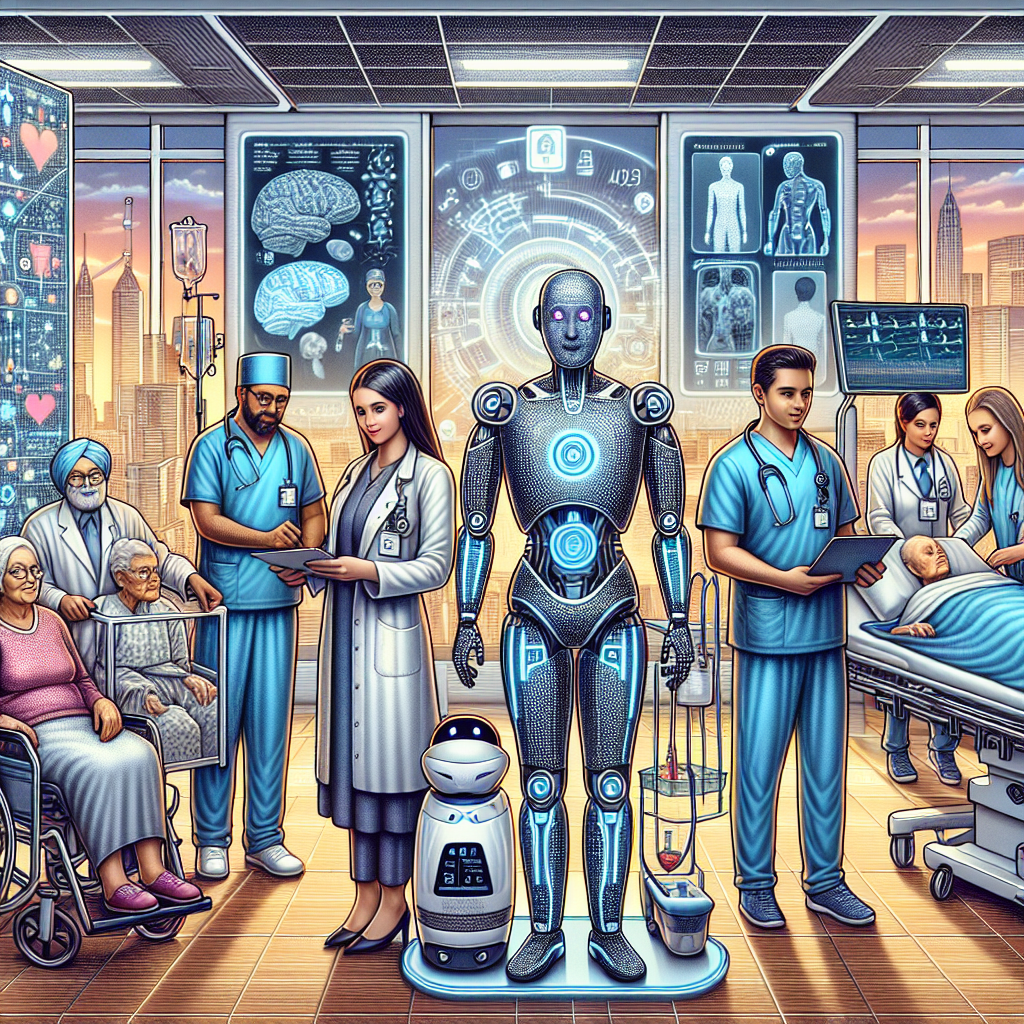The Impact of AI on Healthcare Workforce
Artificial Intelligence (AI) is revolutionizing the healthcare industry in numerous ways, from improving patient outcomes to streamlining administrative tasks. One of the most significant impacts of AI in healthcare is on the workforce. As AI technology continues to advance, it is changing the roles and responsibilities of healthcare professionals, from doctors and nurses to administrators and support staff. In this article, we will explore the impact of AI on the healthcare workforce and discuss how these changes are shaping the future of healthcare delivery.
1. Automation of Routine Tasks
One of the primary impacts of AI on the healthcare workforce is the automation of routine tasks. AI-powered tools and systems can streamline administrative tasks such as scheduling appointments, billing, and coding, allowing healthcare professionals to focus more on patient care. By automating these repetitive tasks, AI can help reduce human error, improve efficiency, and free up time for healthcare professionals to spend with patients.
2. Enhanced Diagnostics and Treatment
AI technologies such as machine learning and natural language processing are revolutionizing the way healthcare professionals diagnose and treat patients. AI-powered diagnostic tools can analyze medical imaging scans, lab results, and patient data to identify patterns and trends that may be missed by human clinicians. This can help healthcare professionals make more accurate diagnoses, develop personalized treatment plans, and improve patient outcomes.
3. Remote Monitoring and Telemedicine
AI is also transforming the way healthcare is delivered, particularly in the realm of remote monitoring and telemedicine. AI-powered wearables and remote monitoring devices can track patients’ vital signs, medication adherence, and overall health status in real-time, allowing healthcare professionals to intervene proactively and provide more personalized care. Telemedicine platforms powered by AI can enable patients to consult with healthcare providers remotely, reducing the need for in-person visits and improving access to care for patients in remote or underserved areas.
4. Predictive Analytics and Population Health Management
AI is helping healthcare organizations better manage population health and prevent disease outbreaks through predictive analytics. By analyzing large datasets of patient information, AI can identify patterns and trends that may indicate a potential health crisis or outbreak. This can help healthcare organizations allocate resources more efficiently, develop targeted interventions, and improve overall population health outcomes.
5. Ethical and Regulatory Considerations
As AI continues to transform the healthcare workforce, there are important ethical and regulatory considerations to keep in mind. Healthcare professionals must ensure that AI-powered tools and systems are used ethically and responsibly, with a focus on patient safety, privacy, and informed consent. Regulatory bodies must also establish guidelines and standards for the use of AI in healthcare to ensure that AI technologies meet the highest standards of quality and safety.
FAQs
Q: Will AI replace healthcare professionals?
A: While AI is transforming the roles and responsibilities of healthcare professionals, it is unlikely to replace them entirely. AI can automate routine tasks, improve diagnostics, and enhance patient care, but human clinicians will always play a critical role in providing compassionate care, making complex medical decisions, and building trust with patients.
Q: How can healthcare professionals prepare for the impact of AI?
A: Healthcare professionals can prepare for the impact of AI by staying informed about the latest AI technologies and trends in healthcare, developing new skills and competencies in data analysis and AI programming, and embracing a culture of lifelong learning and adaptation. By staying ahead of the curve and leveraging AI technologies to enhance their practice, healthcare professionals can thrive in the era of AI-driven healthcare.
Q: What are the potential risks of AI in healthcare?
A: While AI offers numerous benefits in healthcare, there are also potential risks and challenges to consider. These include concerns about data privacy and security, the potential for bias in AI algorithms, the impact on job displacement and workforce retraining, and the need for regulatory oversight to ensure that AI technologies are used ethically and responsibly. Healthcare professionals must be vigilant in addressing these risks and working collaboratively to mitigate potential negative impacts of AI in healthcare.
In conclusion, AI is transforming the healthcare workforce in profound ways, from automating routine tasks to enhancing diagnostics and treatment. By embracing AI technologies and adapting to the changing landscape of healthcare delivery, healthcare professionals can leverage the power of AI to improve patient outcomes, streamline operations, and shape the future of healthcare delivery for the better.

